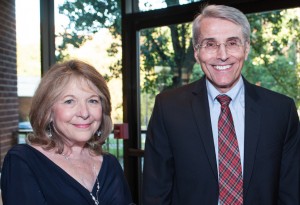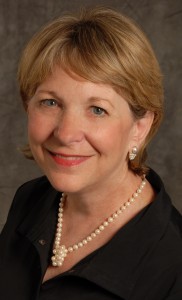The International Cancer Expert Corps remembers Ellen Lewis Stovall, member of the ICEC Board of Directors.
It is with great sadness that the International Cancer Expert Corps (ICEC) joins the cancer care, research and survivorship communities in honoring Ellen Stovall who passed away January 5th. Ellen had great vision and an unsurpassed understanding of the needs of people with cancer and their families, friends and colleagues. She was a pivotal leader in the cancer survivorship community and for nearly two decades served as President and CEO of the National Coalition for Cancer Survivorship.

Ellen Lewis Stovall with Dr. Richard Pazdur
![WHite House - Establishment of the NCI Office of Cancer Survivorship[3]](https://www.iceccancer.org/wp-content/uploads/2016/01/WHite-House-Establishment-of-the-NCI-Office-of-Cancer-Survivorship3-300x205.jpeg)
White House – Establishment of the NCI Office of Cancer Survivorship
Recognizing the enormous gap in cancer care for the underserved worldwide in Lower- and Middle-Income Countries and also among the indigenous and geographically isolated peoples in the United States and other resource-rich countries, she joined the ICEC Board to help develop the unique ICEC approach to global mentorship and to help bring altruistic human-service careers to the fore in cancer care.
In a memorial service on January 10, 2016 in Honesdale, PA, Ellen’s hometown, Dr. Norman Coleman presented a eulogy of Ellen’s professional and personal contributions.
Read remarks delivered by Dr. C. Norman Coleman

Ellen Stovall
In honor of Ellen’s transformational role in cancer survivorship, the ICEC has established the Ellen Stovall Early Career Leaders Working Group Fund. These leaders are trainees and early career academic faculty and private practitioners with demonstrated global health interests who have joined ICEC. These leaders will dedicate their efforts to 1) implementing ICEC’s unique mentorship model to develop sustainable cancer care in underserved communities worldwide and 2) establishing person-to-person relationships with people on the ground. Working with and supporting these leaders of the next generation, ICEC will help sustain careers in global health and service to the underserved in general, which is somewhat challenging in the current healthcare environment.
Further information on the ICEC model is on the ICEC website and in Science Translational Medicine.
Other Obituaries for Ellen Stovall can be viewed below
The Cancer Letter
New York Times
ASCO
Oncology Times
NCCS
Washington Post
USA Today
Photo Credits
Ellen Stovall – Connie Rieder
White House – White House Photographer
Ellen Stovall/Rick Pazdur – NCCS
ICEC remembers Ellen Lewis Stovall
/in Latest NewsThe International Cancer Expert Corps remembers Ellen Lewis Stovall, member of the ICEC Board of Directors.
It is with great sadness that the International Cancer Expert Corps (ICEC) joins the cancer care, research and survivorship communities in honoring Ellen Stovall who passed away January 5th. Ellen had great vision and an unsurpassed understanding of the needs of people with cancer and their families, friends and colleagues. She was a pivotal leader in the cancer survivorship community and for nearly two decades served as President and CEO of the National Coalition for Cancer Survivorship.
Ellen Lewis Stovall with Dr. Richard Pazdur
White House – Establishment of the NCI Office of Cancer Survivorship
In a memorial service on January 10, 2016 in Honesdale, PA, Ellen’s hometown, Dr. Norman Coleman presented a eulogy of Ellen’s professional and personal contributions.
Read remarks delivered by Dr. C. Norman Coleman
Ellen Stovall
In honor of Ellen’s transformational role in cancer survivorship, the ICEC has established the Ellen Stovall Early Career Leaders Working Group Fund. These leaders are trainees and early career academic faculty and private practitioners with demonstrated global health interests who have joined ICEC. These leaders will dedicate their efforts to 1) implementing ICEC’s unique mentorship model to develop sustainable cancer care in underserved communities worldwide and 2) establishing person-to-person relationships with people on the ground. Working with and supporting these leaders of the next generation, ICEC will help sustain careers in global health and service to the underserved in general, which is somewhat challenging in the current healthcare environment.
Further information on the ICEC model is on the ICEC website and in Science Translational Medicine.
Other Obituaries for Ellen Stovall can be viewed below
The Cancer Letter
New York Times
ASCO
Oncology Times
NCCS
Washington Post
USA Today
Photo Credits
Ellen Stovall – Connie Rieder
White House – White House Photographer
Ellen Stovall/Rick Pazdur – NCCS
The Time is Now: Solutions to reduce the global cancer burden exist
/in Articles / Publications“If only one effective radiation treatment unit is commissioned every week, it will take a century to solve this problem.” — Gap projections by the IAEA
Dr. C. Norman Coleman’s and Dr. Bruce D. Minsky’s comment, “The Verdict is in: The Time For Effective Solutions to the Global Cancer Burden is Now,” supports the need assessment and economic analysis by Rifat Atun and colleagues, found in the September issue of The Lancet Oncology. Coleman and Minsky offer that there are opportunities for innovative technologies to cope with and dramatically improve the challenging infrastructures in low-and middle-income countries as well as with indigenous populations in resource-rich countries. Experts around the world are both available and eager to mentor, train and sustain health care professionals in these areas. As a society we can no longer ignore this problem; the verdict is in—and the time is NOW.
The Lancet Oncology: Radiotherapy critical to improving global cancer care
/in Articles / PublicationsIn the September issue of The Lancet Oncology, a team of international experts released data indicating expanding access to radiotherapy is a worth while investment in low income countries. Many of these experts are involved in the International Cancer Expert Corps efforts to reduce mortality and improve the quality of life for people in low- and middle income countries and regions worldwide. Read the summary of The Lancet Oncology article, “Expanding Global Access To Radiotherapy“.
Call to improve radiotherapy access around world
/in Articles / PublicationsData compiled by a team of international experts to expand global access to radiotherapy will be presented in Vienna at the European Cancer Congress. Radiotherapy is an important element of comprehensive cancer treatment and care for many common cancers, and is essential for effective treatment. Unfortunately, the majority of people in low-income countries have no access to much needed radiotherapy treatment. Research indicates increasing the accessibility of radiotherapy treatment is possible and a highly cost-effective investment.
Read more
Global Challenges in Radiation Oncology
/in Articles / PublicationsIn the United States, much of the research is focused on developing new and very expensive technologies and drugs – often without a major therapeutic benefit. In resource limited countries, basic oncology care is frequently lacking. In addition, the benefits of various chemo-radiotherapy combinations for a number of malignancies are unknown as these populations have not been adequately investigated.
View the full PDF article
Consortium of Universities for Global Health, Annual Meeting
/in MeetingsMarch 26 to March 28
Boston, MA United States
Center for Global Health, National Cancer Institute, Annual Meeting
/in MeetingsMarch 25th, 2015
Boston, MA United States
The International Cancer Expert Corps: a unique approach for sustainable cancer care in low and lower-middle income countries
/in Articles / PublicationsThe growing burden of non-communicable diseases including cancer in low- and lower middle income countries (LMICs) and in geographic-access limited settings within resource-rich countries requires effective and sustainable solutions.The International Cancer Expert Corps (ICEC) is pioneering a novel global mentorship–partnership model to address workforce capability and capacity within cancer disparities regions built on the requirement for local investment in personnel and infrastructure. Radiation oncology will be a key component given its efficacy for cure even for the advanced stages of disease often encountered and for palliation. The goal for an ICEC Center within these health disparities settings is to develop and retain a high-quality sustainable workforce who can provide the best possible cancer care, conduct research, and become a regional center of excellence. The ICEC Center can also serve as a focal point for economic, social, and healthcare system improvement. ICEC is establishing teams of Experts with expertise to mentor in the broad range of subjects required to establish and sustain cancer care programs. The Hubs are cancer centers or other groups and professional societies in resource-rich settings that will comprise the global infrastructure coordinated by ICEC Central. A transformational tenet of ICEC is that altruistic, human-service activity should be an integral part of a healthcare career.To achieve a critical mass of mentors ICEC is working with three groups: academia, private practice, and senior mentors/retirees. While in-kind support will be important, ICEC seeks support for the career time dedicated to this activity through grants, government support, industry, and philanthropy. Providing care for people with cancer in LMICs has been a recalcitrant problem. The alarming increase in the global burden of cancer in LMICs underscores the urgency and makes this an opportune time fornovel and sustainable solutions to transform cancer care globally.
Read More
Cancer Health Disparities: Transforming Science, Service, and Society.
/in Articles / PublicationsDescribes the underpinning of the ICEC approach to transforming global health and healthcare careers. Includes unique opportunities for the sectors of: healthcare, implementation science, technology, economics and research.
Read More
Addressing cancer disparities among American Indians through innovative technologies and patient navigation: the walking forward experience
/in Articles / PublicationsFrontiers in Oncology
Describes a pioneering program for bringing cancer care and research to American Indians
This is the basis of our internationalizing the efforts to reach “First Nations” and related populations in resource-rich countries.
First author Daniel Petereit, member ICEC Board of Directors.
Read More